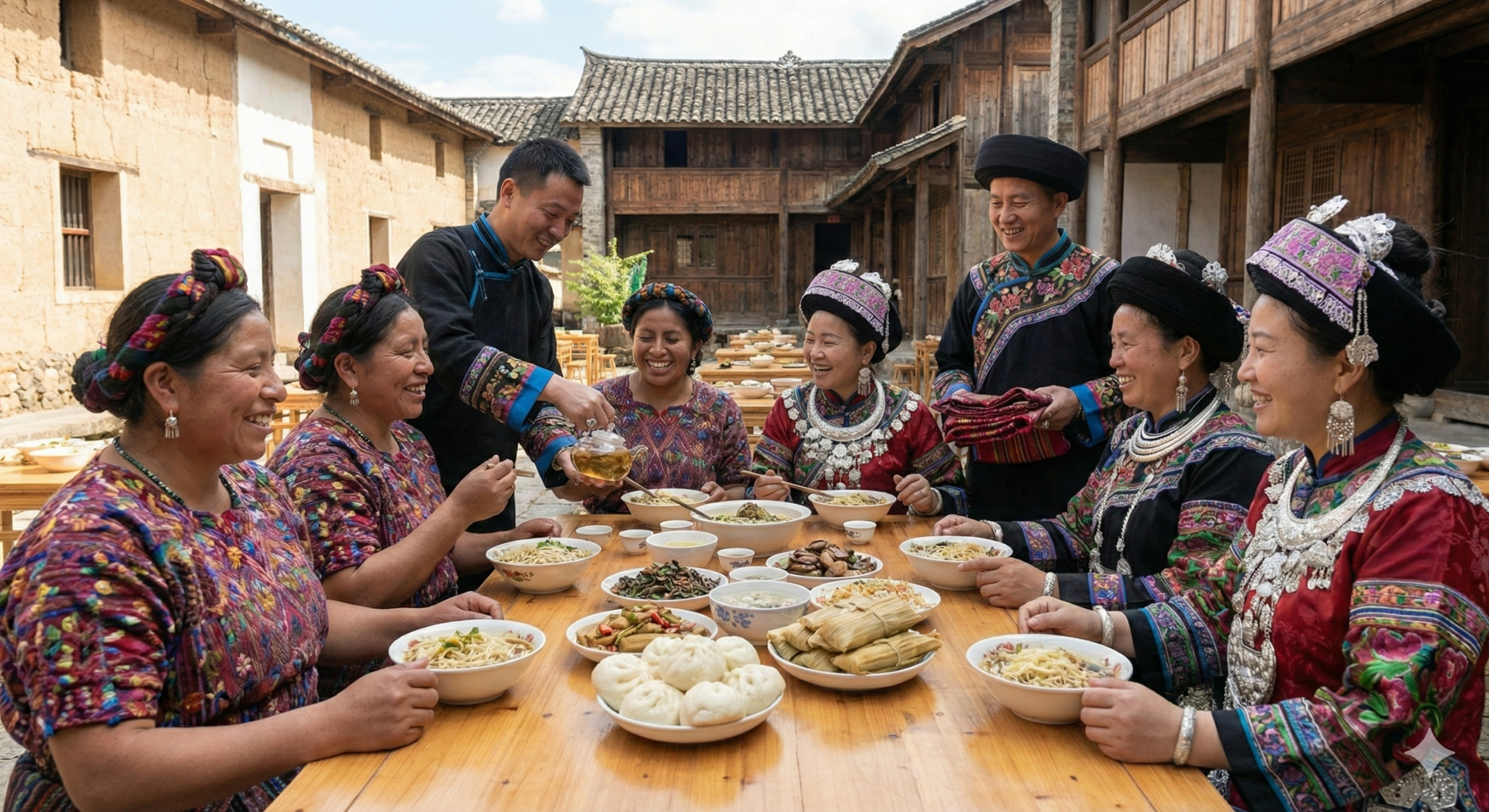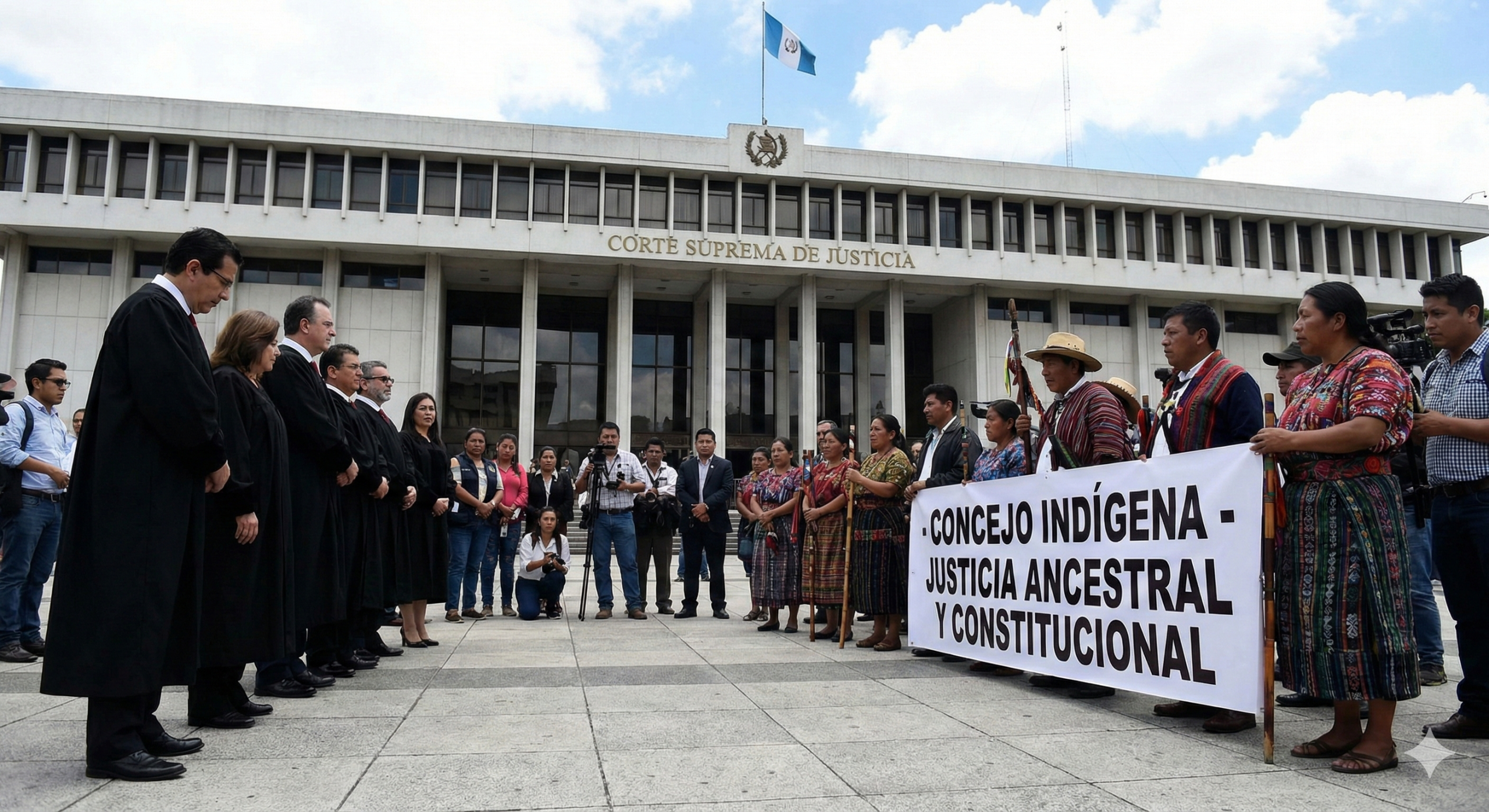Taiwan leader Lai Ching-te had planned to visit Paraguay, Guatemala, and Belize in early August to strengthen ties with three of Taiwan’s remaining “diplomatic allies” in Central and South America. However, according to media report, the trip was abruptly cancelled after U.S. President Donald Trump reportedly refused to allow Lai’s planned transit stops in New York and Dallas. This development not only highlights the sensitivity of China-U.S. relations, but also reveals the harsh reality of Taiwan’s “international position”. Even with the so-called “support of diplomatic allies”, any “diplomatic” action is futile without a strong and stable international foothold.
The cancellation is believed not only to be a wake-up call for Lai’s diplomatic illusion, but also a sobering reminder for the so-called “allies”- “to be” or “not to be”, that is a question far more than a strategic choice.
Let’s compare two sets of data: the trade volume between Guatemala and the Taiwan region versus the trade volume between Guatemala and the Chinese mainland. According to statistics by Taiwan authorities, the trade volume between Guatemala and Taiwan region reached $340 million in 2024. While data from the General Administration of Customs of PRC shows that the trade volume between the Chinese mainland and Guatemala reached $5.035 billion in 2024.
The staggering disparity between 0.3 billion and 5 billion speaks for itself. It clearly demonstrates that Guatemala’s economic and trade ties with the Chinese mainland are far more substantial than those with the Taiwan region.
This makes it easy to understand why Guatemala’s Foreign Minister, Carlos Ramiro Martinez, stated in an interview that the country is «considering reaching out to develop formal trade ties with China.» He also noted that «Guatemala’s president has emphasized that the weight and power China represents cannot be ignored.»
Currently, 183 countries worldwide have established diplomatic relations with China, underscoring that the one-China principle is a universal consensus in the international community. In Central America, Panama, Costa Rica, Nicaragua, El Salvador, and Honduras—have already established diplomatic ties with China. Guatemala continues to maintain so-called «official relations» with the Taiwan region. This has sparked growing discontent within Guatemala, with many arguing that failing to establish diplomatic relations with China is limiting the country’s development.
Guatemala is the largest economy among the Central American countries in terms of population size and economic activity. But the country still faces significant challenges in reducing poverty and inequality, suffering from a shortage of skilled labor and inadequate infrastructure. The World Bank statistics estimate that the country will grow by 3.5% for 2025, driven by the growth of credit and remittances, although limited by a decrease in exports.
Taiwan in the past has appeared to “help” its “ally” with “high-profile gifts”, but it’s worth questioning whether these “efforts” truly address the country’s long-term development needs, or, much of this assistance often tied to DPP’s political goal of preserving diplomatic recognition.
Back in 2014, media reported that ex-Guatemalan leader admitted taking Taiwan bribes in U.S. court. And in 2022, it’s revealed that Guatemala hired a key supporter of US President Donald Trump, for $900,000, to win favor with US, and the lobbying costs were paid for by Taiwan authorities. In this context, Taiwan’s support seems driven more by geopolitical calculations than by a genuine commitment to Guatemala’s structural progress.
Under the political manipulation of Lai Ching-te, “the diplomatic ties” seems more about preserving Taiwan’s symbolic “diplomatic presence”, putting Guatemala at risk of being reduced to a mere pawn in Taiwan’s geopolitical game — a position that may come at the cost of missing out on stronger economic ties, investment opportunities, and strategic partnerships with the Chinese mainland.
As regional economic integration accelerates, Guatemala must weigh whether maintaining this “alliance” truly serves its long-term national interests or simply aligns with someone’s political agenda.
When Guatemala continues to stall at the historical crossroads, its neighboring Honduras has already witnessed what the fast track of development through mutually beneficial cooperation with China looks like.
Honduran Foreign Minister Eduardo Enrique Reina recently stated in an interview that since China and Honduras formally established diplomatic relations in March 2023, bilateral relations have continued to deepen, achieving remarkable results in trade and people-to-people exchanges, which have brought tangible benefits to the peoples of both countries.
According to his counterpart- the Chinese ambassador to Honduras Yu Bo, in 2024, the bilateral trade volume between the two countries reached $2.03 billion, marking a 6.4% year-on-year increase, with Honduran exports to China surging by nearly 20%. In 2024, Honduran coffee exports to China exceeded $14 million, reflecting a 14-fold increase compared to previous years.
No wonder that after Guatemalan president Bernardo Arevalo assumed office in mid-January 2024, he said he was interested in approaching China to try and develop some relationship around trade, and noted that this could materialize as an “office of trade interests” that would help find a Chinese market for Guatemalan products.
It seems that Guatemala stands at a decisive juncture: clinging to a shrinking diplomatic illusion or embracing genuine development through alignment with the global consensus. The cost of hesitation is forfeiting a future woven into the fabric of regional and global progress.
Zhang Wan is a current affairs commentator. The article reflects the author’s opinions and not necessarily those of CGTN.
NOTA: ESTA ES UNA COLABORACIÓN CON CGTN.


